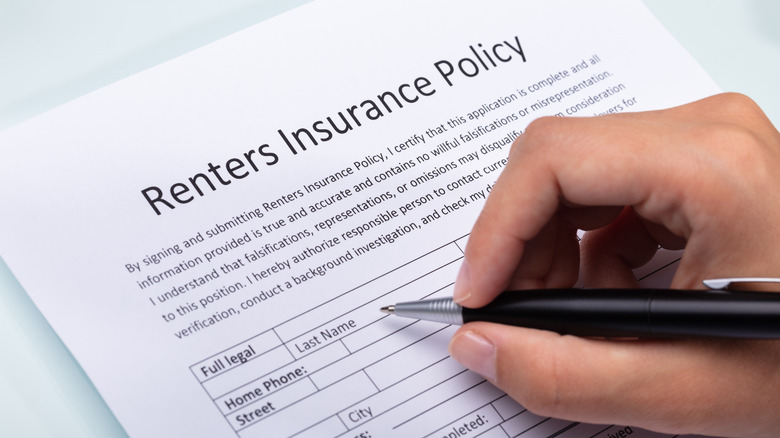5 Tips For Safely Subletting Your Apartment Fast
Subletting your apartment means having someone else take over all or part of your space. For example, if you're traveling over the next few months and don't want your apartment to sit empty while you're away, you could sublet your apartment during that time. When you sublet the space, someone else lives in your home, but your name stays on the rental lease. Subletting is a great way to avoid having to pay your full apartment rent when you may not be living there; however, you need to make sure you entrust your apartment to someone safely.
If a subtenant fails to pay you or damages the property in some way, you could still be on the hook for the resulting costs. If you plan to share some or all of your space with another person, you certainly want to find someone that you can feel comfortable with living in your home. Yet, there's more to subletting an apartment than just this. As said, subletting, also known as subleasing, doesn't mean you're any less responsible for any contractual obligations (via Investopedia).
Here's what you need to know before you start advertising your apartment as a sublet.
1. Know the rules
Before you get started, Rocket Lawyer says the first thing to do is to ensure your apartment lease allows for subletting or subleasing. In some cases, the rental agreement will not mention subletting. You may still need to ask the landlord or property owner about subleasing it before you jump in to do so. Don't assume the property owner will not mind.
If your apartment contract does mention subletting, follow those rules. Remember, you signed the lease and agreed to them. If you break them, you could be evicted even if you make payments on time every month.
Also, note that some communities have laws regarding subletting, with restrictions as to when and how it is done. Some areas simply do not allow for this arrangement. To find out what the rules are in your area, turn to the rental authority within your community or make a quick phone call to an attorney to find out what your rights are.
2. Contact your renter's insurance company
Most renters know the value of renters insurance. It's there to protect you if a fire or theft occurs, leading to the loss of your personal belongings. However, renters insurance policies typically have a number of limitations and restrictions with them.
According to Apartment List, some renters insurance policies may not extend your coverage to the subletting tenant. That means that if you leave your home furnishings in place while someone else lives at the home and a fire breaks out, your coverage may have limitations.
Contact the renters insurance company directly. Ask it what its rules are on subletting, as well as if there's a policy that extends to subletting. Many companies offer an upgraded policy that will allow you to get more coverage to include subtenants.
If you cannot do that, remove your belongings from the home before you sublet the apartment Otherwise, you may be financially unprotected from an incident.
3. Advertise your opportunity
Once you know the rules and have insurance in place, the next step is to tell others about your apartment subletting offer. Just as you would any other opportunity, start with letting your friends and family know about it. That means you might have people you know considering the property.
If that doesn't check out, there are a few things to do, according to furniture rental company CORT. You can always turn to local Facebook pages to allow those in your area to learn about your sublet. Connect with people who live in the community, as well, who may have a friend or family member that needs a place close by to live.
If you live in a community with a college, don't overlook college social media pages. You may want to let a few college students on campus know about the opportunity, especially older students who may be moving out of dorms. Spread the word about your opportunity.
4. Get the price right
The question you have to answer is this one: To sublet your apartment quickly, you need to be sure you price the property right. How much is fair?
Generally, subletting in most markets could mean charging between 70% and 80% of the normal rental price, according to Trulia. Most often, those who sublet expect to have a price that's lower than the traditional rent, as that is one of the key benefits of renting like this.
Other factors may play a role in what you charge, too. You need to charge enough to cover any utilities that the tenant will use unless they plan to pay for those themselves. Also, note the length of time for the sublease. If it's only a few months, you may have to keep costs low to entice someone to use that space.
If you live in a high-demand area where rents are spiking, you may be able to get closer to the apartment's full rental price. That's likely only if there is significant demand and few options in the community.
5. Do your homework
Before renting out your property, invest in some research. To ensure the process is safe, do what you can to learn as much as possible about the person you plan to sublet your apartment to before you do so. That's especially important if you plan to live within the property with them.
Realtor.com offers a bit of insight into this, stating you need to check references. Do the same type of process any rental owner in your area would do to ensure the subtenant is a safe bet. In terms of background checks, be sure you know what's legal in your area.
Do due diligence in this process. That often means ensuring the subetter is financially responsible as well as a responsible party. Don't just take a friend's word for it, either. Talk to the people they used to live with prior to moving into your space. Ask questions of their references, and be sure those people are not just their parents.





